|
Institutes
| State Level
Institutes |
|
Tamil Nadu
Rice Research Station, Tirur
- Established as Paddy experimental station in 1942
- Renamed as Rice research station in 1982
- Varieties released so far - TKM 1 to TKM (R) 12
|
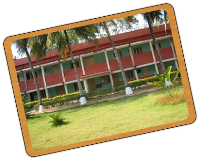 |
Mandate
- To evolve high yielding and quality rice varieties suited to upland, semidry and irrigated conditions
- To evolve varieties tolerant to saline, alkaline and coastal inland situations
- To produce nucleus and breeder seeds in rice viz., TKM 9, TKM 11 and TKM (R)12, ADT 43, ADT (R)45.
- To identify the genotypes resistant to blast, bacterial leaf streak, Rice Tungro Disease, rice leaf folder and rice black bug
- To develop Integrated Nutrient Management practices and Integrated Pest and Disease Management strategies
- To produce and supply ornamental plants, fruit seedlings and vegetable seeds for the citizens in and around Chennai city
- To cater the needs of extension functionaries and farming communities of both Thiruvallur and Kancheepuram Districts
- To coordinate the extension activities in collaboration with allied departments
Contact
Rice Research Station,
Tirur – 602025, Sevapet Road,
Thiruvallur District
|
|
| Top |
Tamil Nadu Rice Research Institute, Aduthurai
First Research Station at Manganallur : 1912
Shifted to Aduthurai as Agricultural Research Station: 1922
Renamed as Regional Research Station: 1962
University Research Centre (TNAU) started in State Regional Research Station and University : 1973
Research Centre merged and names as TRRI: 1981
Elevated as a Directorate (Rice Lead Centre): 1985
- Varieties released so far - ADT 1 to ADT 48 and Hybrids ADTRH - 1, 2.
|
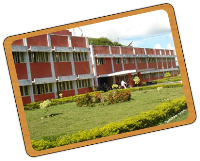 |
Mandate:
- To meet the research requirements of the region with the help of existing Agricultural Colleges and Research centers
- To perform lead function for rice and rice based cropping systems
- To coordinate the research program of all the stations of the state on rice and rice based cropping systems
- To serve as testing and verification centre for the technologies developed at other stations and applicable to the region
RESEARCH SCHEMES ON RICE
- Scheme for the Production of breeder seed in paddy
- Scheme for commercial exploitation of heterosis in rice
- AICRIP on rice
- IRRI-MEGA Project - Reversing trends of declining productivity in intensive irrigated rice systems (IRRI)
- Hybrid rice seed production in ADTRH 1 and CORH 2
- Mass Production of biocontrol agents viz., Pseudomonas and Trichoderma.
Contact:
Tamil Nadu Rice Research Institute, Thanjavur district, Aduthurai, Tamilnadu. PIN-612101
Telephone: 0435-2472098 (Off.)
Fax: 0435-2472881
E-Mail: dirtrri @tnau.ac.in |
|
| Top |
Agricultural Research Station, Bhavani Sagar
- The station is functioning from 1955 adjacent to Bhavanisagar dam, 15 km away from Sathyamangalam in Erode district on Sathy-Mettupalayam road (SH 15).
- The station is now known as Agricultural Research Station, Bhavanisagar.
Mandate
- The station has been contributing mainly for the farmers of Erode and nearby districts by producing and supplying quality seeds in rice.
|
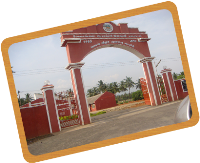 |
- Apart from this, the farmers were given on hand training on hybrid rice seed production and many farmers are involved in participatory seed production programmes.
- The water management scheme operating in this station, train the farmers in efficient usage of water by adapting different management technologies.
Technologies developed and is adapted by farmers
Rice Irrigation to a depth of 5 cm water once in 4 days (or) 1-2 days after disappearance of ponded water saves 30% water |
|
| Top |
Paddy Breeding Station, TNAU, Coimbatore
- This station was established in the year 1912 and is the oldest rice research station in India.
- This centre is internationally renowned with its record in rice history, headed by the British scientists like F.R. Parnell, P.O. Iliffe and also by the first Indian paddy specialist Dr.K.Ramaiah.
- This is situated at an elevation of 426.72m and between 11oN latitude and 77oE longitude. The total area is 12.96 ha having clayey texture of soil with 7.8 pH. The average rainfall is 900 mm per year.
- Varieties released so far - CO 1 to CO 50 and Hybrids CORH - 1, 2 and 3.
|
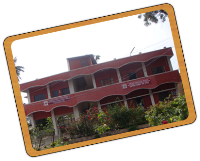 |
Objectives
- Development of high yielding varieties of different duration groups through Inter disciplinary approach.
- Collaborative research programmes are being carried out with the co-ordination of Directorate of Rice Research, Hyderabad through All India Coordinated Rice Improvement Project (AICRIP)
- Collaborative research with International Rice Research Institute, Philippines and Directorate of Rice Research, Hyderabad.
- Hybrid rice research in the National and International network programme.
- Genetic enhancement through innovative approaches like wide hybridization, anther culture and molecular aspects.
- Accomplishing post graduate research
- Transfer of technology to create awareness by organizing training programmes, front line demonstrations and study tours for the benefit of the farming community.
Contact
The Professor and Head,
Dept of Rice
Center for Plant Breeding and Genetics
TNAU, Coimbatore – 641 003, Tamil Nadu, India.
E-mail: rice@tnau.ac.in
|
|
| Top |
Anbil Dharmalingam Agricultural College and Research Institute, Tiruchy
- It was upgraded as Soil Salinity Research Centre to conduct research on saline soil which is unique in this area.
- This is one of the pioneering centre in India on problem soil, particularly salt affected soils.
- Varieties released so far – TRY 1, 2 and 3.
Research:
- To evolve crop varieties and technologies best suited for salt affected soils.
|
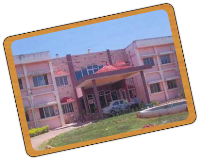 |
- A high yielding, salt tolerant, medium duration (135 to 140 days) rice variety TRY.1 has been released.
- A salt tolerant rice culture has been identified as suitable for Kuruvai and Navarai seasons of Tamil Nadu and released as TRY ( R ) 2 with a duration of 115-120 days.
- A new spentwash technology for reclamation of the non-saline calcareous sodic soil was developed, perfected and test verified on large scale in the ACRP mass reclamation project
- By application of organic amendments like pressmud or FYM 50 kg/cent with or without daincha 25kg /cent, rice seedlings can be raised in sodic soil with sodic water irrigation.
- Under saline and sodic soils of coastal area, application of Derris indica @ 5 t/ha remaining N as urea in 3 splits along with Azospirillum in rice TRY.1 variety recorded higher yield and also reclaimed the problem soils.
Contact:
Anbil Dharmalingam Agricultural College & Research Institute
Navalur Kuttapattu
Trichy – 620 009
Web Site:www.tnau.ac.in
Email:deanagritry@tnau.ac.in
Phone No:0431-2906100
Fax.No:0431-2690693
|
|
| Top |
Agricultural College &Research Institute, MADURAI
Varieties released so far – MDU 1 to 5.
Significant research highlights are:
- Production of quality paddy seeds.
 MDU 5 a short duration (105 days) rice was released. It is also drought tolerant and suitable for tank fed area. MDU 5 a short duration (105 days) rice was released. It is also drought tolerant and suitable for tank fed area.- IET 153577 a medium duration Basmati culture has been identified for release in southern districts.
- Among the recent recommendation, the aged seedlings for throwing method in rice has been determined as 25 days provided a mean yield of 4199 kg with a gross income of Rs. 20,995/ha.
|
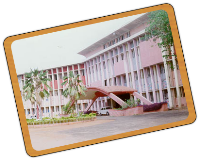 |
- Cold tolerance in rice grown in Cumbum valley can be induced with the application of 25 kg/ha Zinc Sulphate.
- On per cent Sodium Molybdate spray after N top dressing and on 30th day gives highest rice grain yield under cold stress condition.
- Screening of rice cultures against WBPH has resulted in identification of 21 cultivated genotypes resistant to WBPH that can be used for resistance breeding.
- Production of Rhizobium and Azospirillum along with silicate solublizing bacteria have helped to reduction in use of inorganic urea fertilizer and improve the uptake of phosphate and silica in rice
Contact:
Dean
Agricultural College and Research Institute
Madurai-625104 India
Email: deanagrimdu@tnau.ac.in
Phone: 91-452-2422956
|
|
| Top |
Soil and water Management Research Institute, Kattuthottam
Soil and Water Management Research Institute, Kattuthottam, Thanjavur was established during 1972
Objectives
- To conduct research on the improved methods of water conveyance, application and utilization on rice and other crops grown in the Cauvery Delta Zone
|
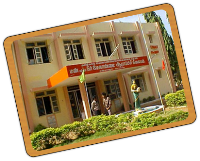 |
- To work out the optimum irrigation methods and water requirements for rice.
- To study the soil, water and nutrient interactions and their effect on the growth and yield of crops
Technologies developed
- Rice: Improved drum seeder- Institute test verified and improved
- Broadcasting of seedlings of 15 or 20 days old in to the puddle and leveled soil without any reduction in grain yield with considerable labour saving and B:C ratio
- Site Specific Nutrient Management (SSNM)- farmers can dynamically adjust and efficiently manage the nutrients application.
- Application of neem leaf blended urea gave higher yield
- Application of green leaf manure and phosphobacterium increased yield.
- Foliar spray of DAP 2% with KCl 1% improved the seed quality and yield
- Summer ploughing with mould board plough reduced water requirement and weed proliferation.
Contact address
Professor and Head
Soil and water Management Research Institute
Kattuthottam Thanjavur 613 501
Phone: 04362- 267680
Fax: 04362- 267619
E-mail: arsswmri@tnau.ac.in
|
|
| Top |
Rice Research Station, Ambasamudram
- The Rice Research Station at Ambasamudram was opened at 1937.
- The Station was started in an area of 9.49 acres of double crop wet land and 2.18 acres of dry land.
- Varieties released so far - ASD 1 to ASD 20.
Objectives:
- Improvement of the local varieties of paddy by pure line selection and hybridisation to try the possibilities of introducing new varieties of paddy from other places and also for conducting manurial and cultural experiments.
- It evolves high yielding varieties of rice that would suit different agro climatic contexts which quality would resist major insects and diseases.
|
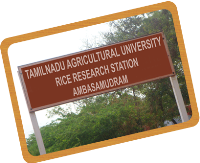 |
- Providing techniques on seed and main field treatments for improved rice varieties, and
- Providing suitable manurial recommendations for rice varieties under cultivation and for pre-release cultures culturing native soil fertility with bio-fertilizer,
- Forecasting insects or diseases in relation to weather conditions and providing suitable plant protection measures are the other functions of the station.
- This Research station has released many improved strains in rice, of which the strains ASD 16 and ASD 18 in 1994-95.
Contact:
Rice Research Station
Ambasamudram - 627 401
04634 – 250215
Fax No.: 04634 255424
arsasd@tnau.ac.in
|
|
| Top |
Agricultural Research Institute, Tirupathisaram
The Agricultural Research Station, Thirupathisaram was started in the year 1976.
Objectives:
- Evolving suitable rice varieties for Kanyakumari District
- Recommending suitable package of practices for cultivation of rice varieties and
- Solving the problem of the farmers in cultivation of crops
Varieties Released - TPS 1, TPS 2, TPS 3, TPS(R)4 |
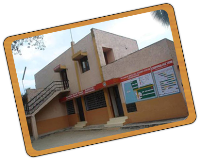 |
Contact:
Agricultural Research Station
Thirupathisaram 629 901
Kanyakumari District, Tamil Nadu
É(04652) 276728
Fax : 04652 275357
E-mail: arstps@tnau.ac.in |
|
| Top |
Agricultural Research Station, Paramakudi
- Agricultural Research Station, Paramakudi is located in the southern bank of the river, Vaigai on Madurai - Rameswaram National Highway.
- In 1952, it was established as Research station under State Department of Agriculture.
- Then, it was recognized as Paddy research Sub-center from 1952 to 1958.
- Later it was changed as State Seed Farm from 1958 to 1978.
- Again it was renamed as Multi-Crop experiment sub-station from 1978 to 1981.
- Finally it was established as Agricultural Research Station under Tamilnadu Agricultural University from 1981 onwards.
- Varieties released so far – PMK- 1, 2 and 3.
|
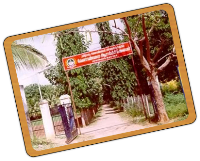 |
Objectives
- To evolve and evaluate very early, early duration drought tolerant high yielding rice varieties for dry and semidry conditions of Ramanathapuram and Sivagangai districts
- To develop improved agronomic techniques for rainfed rice.
- To find out alternate remunerative crops for rice during aberrant weather situations.
Current Research Activities:
- Breeding rice varieties for higher yield and drought tolerance.
- Finding out suitable weed and stress management practices for dry/semi-dry rice.
- Sorting out suitable IPM technology for dry/semi-dry rice.
|
|
| Top |
Regional Research Station, Paiyur
- Established as Regional Research Station during 1973 at Dharmapuri district.
- It is Located on the NH-7 (Bangalore - Salem) 108 kms from Bangalore ; 29 kms from Dharmapuri.
- Varieties Released - Paiyur 1
Mandate
- Test verification centre for rice crop grown in the North Western Zone of Tamil Nadu
- To generate technologies for rainfed and irrigated farming practices
|
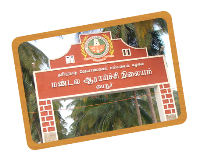 |
- To maintain an inventory of soils and their characteristics indicating the problem areas
- To survey the incidence of pests and diseases on major crops and to generate appropriate management techniques
- To serve as a centre for training of extension workers and farmers in production technology of millets and pulses
- To adopt few villages for Integrated Village Development Programme (IVDP)
- To publish and disseminate research findings and recommendations of the station
- To design and develop low cost farm implements for major crops
|
|
| Top |
Hybrid Rice Evaluation Centre, Gudalur
Research:
- Research on Critical temperature and stages of fertility alteration in thermo- sensitive genic male sterile lines of rice
- The fertility behaviour of six TGMS lines and their utility in developing two-line rice hybrids were assessed as a viable genetic option for food security in tropics.
- A set of 17 putative TGMS lines identified at Tamil Nadu Agricultural University (TNAU), Coimbatore, India and IRRI-bred lines obtained from the Directorate of Rice Research, Hyderabad, were evaluated for pollen and spikelet fertility.
|
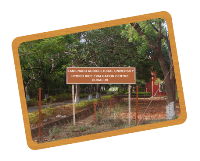 |
Contact
Hybrid Rice Evaluation Centre,Tamil Nadu Agricultural University,
18 New Municipal Complex, OOTY Main Road, Nilgiri District,
Gudalur - 643 212, Tamil Nadu, India
Tel. No: 9443222373 Fax. No: 04262-264945
|
|
| Top |
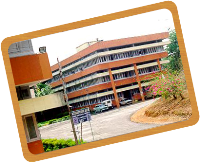 |
Kerala
Rice Research Station, Moncompu
Mandate:
The centre is exclusively to deal with research on rice in Kuttanad ecosystem. A unit of All India Co-ordinated Rice Improvement Programme is functioning here.
|
Accomplishments:
- The centre was instrumental in solving several problems in deep water areas such as Kuttanad. The Centre has so far released 12 rice cultivars.
- These are Mo1, Mo2, Mo3, Bhadra, Asha, Pavizham, Karthika, Aruna, Makom, Remya, Kanakam and Ranjini and are well accepted by the farmers.
- Another seven pre-release cultures were proposed for release. They are Pavithra, Panchami, Remanika, Uma, Revathy, Karishma and krishnanjana.
- The centre has come up with viable management strategy against varinellu (wild rice) in rice by coating rice seeds with calcium peroxide. Recommendations on nitrogen management, herbicidal control of weeds, use of rock phosphates in acid soils, etc. are other contributions.
- An Integrated pest management strategy has been worked out for Brown Plant Hopper of rice. Control measures for brown spot and sheath blight of rice were also evolved.
- An indigenous cheap and efficient rat trap "the Moncompu trap" has been designed for trapping rats in rice fields.
Contact:
The Rice Research Station, Monkompu is located at Monkompu,
Thekkekkara of Champakaulam Panchayat in Kuttanad Taluk of Alappuzha District. |
|
| Top |
 |
Rice Research Station, Vyttila
- The Rice Research Station, Vyttila is situated in a representative site in the centre of the pokkali tract.
- This station started functioning during the year 1958 in a leased land in Kunnara, and was shifted to the present site in 1963.
- The station was taken over by the KAU in 1974.
- Taking into account the importance of fish- prawn culture during the saline phase, a unit for fisheries research was established during the year 1976.
- At present the station has a total area of 8.91 ha of which 4.25 ha are wet land.
|
Mandate:
Rice in Pokkali (Saline) areas and rice-fish farming system are the lead functions.
Accomplishments:
- Five saline tolerant, high yielding rice cultivars suited to the Pokkali ecosystem have been evolved. The cultivars are Vyttila - 1, Vyttila - 2, Vyttila - 3, Vyttila - 4, and Vyttila -5.
- A technology for raising prawns as a follow up crop after rice has been standardised.
- Technology for the simultaneous culture of rice and fish has also been evolved.
|
|
| Top |

|
Agricultural Research Station, Mannuthy
- This station was started during the year 1957 as Rice Research Station, Mannuthy in the then Central Farm, Ollukkara.
- With the formation of the Kerala Agricultural University during 1972, the Rice Research Station, Mannuthy and the Agricultural Research Station, Mannuthy were taken over from the State Department of Agriculture and brought under the control of Agricultural University.
- In the year 1976, Rice Research Station and Agricultural Research Station were merged and this Research Station was named as Agricultural Research Station, Mannuthy with effect from 01.01.1988.
|
Mandate:
Lead functions are on rice for kole land management system, and on coconut. Verification functions include vegetables and organic farming.
Accomplishments:
- The centre developed an extra short duration red kernelled rice cultivar, hraswa maturing in 75 - 80 days.
- Another cultivar Ahalya was also released for cultivation.
|
|
| Top |

|
Regional Agricultural Research Station, Kayamkulam
- Regional Agricultural Research Station, Kayamkulam is located in the Kayamkulam Municipality of Alappuzha District, one kilometer east of Kayamkulam town, on the northern side of Kayamkulam - Punalur road.
- The station was established in the year 1937 under the erstwhile University of Travancore.
- It was subsequently transferred to the Department of Agriculture in 1958 and continued to function under it till it became a part of the KAU on 07.02.72.
- I n April, 2000, this Station was upgraded to the status of RARS (Onattukara Region).
|
Mandate:
Lead functions are on rice in Onattukara.
Accomplishments:
- Eight rice varieties have been released for cultivation, especially for Onattukara tract of Kerala. They are U 19, UR 110, Kottarakkara - 1, Lakshmi, Bhagya, Onam, Dhanya and Sagara.
- Two cultivars in rice - Makaram and Kumbham.
- Several crop management and crop protection recommendations for rice with respect to Onattukara tract have been evolved and recommended.
|
|
| Top |
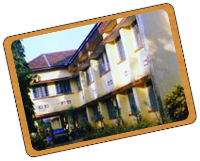 |
Regional Agricultural Research Station, Pattambi
Mandate:
Generation and transfer of technology related to rice and rice based cropping system, pulses, vegetables, organic farming and seed technology. |
Current Activities :
Rice Research
- Conservation and characterisation of germplasm
- Breeding for yield improvement and consumer acceptability
- Resistance breeding
- Development of hybrid rice
- Research on yield maximisation under different situations
- Nutrient management & weed control studies
- Research on summer rice fallow utilisation
- Long Term fertilizer Experiments
- Screening of cultures for pest and disease resistance
- Evaluation of new insecticides and fungicides
- Research on sex pheromone for pest management
- Studies on botanicals for control of disease and pests
Accomplishments:
- 54 high yielding rice varieties – Aryan (Ptb l) to Karuna (Ptb54)
- Annapoorna : First high yielding, early, dward rice variety in the whole country
- Jyothi : Ever popular among farmers of the state
- Kairali, Kanchana, Aathira, aiswarya, Mangala Mashuri and Karuna – recent varieties
- Comprehensive cultivation package for rice for different seasons
- Scientific fertilizer schedules for rice under different situations
- Integrated weed management strategy with emphasis on herbicides
- Effective pest and disease management in rice
- Sources of resistance to major pest and disease
- Two high yielding cowpea varieties : Kanakamony and Krishnamony
- One high yielding early Chinese potato variety : Nidhi
- One high yielding mosaic tolerant variety : Indu
|
|
| Top |
| Karnataka
Regional Research Station, V.C. Farm, Mandya
- The College of Agriculture Mandya is located 10 km away from Mandya Town in Kamataka State on Mandya-Melkoteroad, which is popularly known as Vishweshwaraiah Canal (V.C) Farm.
- The Campus is situated at 19° N latitude and 76°E , longitude and at an altitude of 695 m above MSL.
- College of Agriculture – Mandya started functioning during the year 1991-92 has successfully completed 15 years of fruitful academic accomplishment.
- It was started as part of ruralization of Agricultural education as envisaged by Govt. of Karnataka.
|
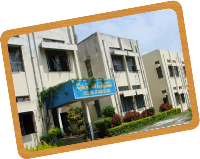 |
|
University of Agricultural Sciences, GKVK, Bangalore
- Release of hybrids and high yielding varieties in rice for the benefit of the farming community are the impressive records of the research.
- The University has developed and introduced as many as 143 improved varieties which include 9 hybrids since inception.
- In Paddy 44 (42 varieties & 2 hybrids)
Contact:
University of Agricultural Sciences,
GKVK, Bangalore - 560 065.
Ph: 080-23330984
Mob: 9448966901
E-mailregistrar@uasbangalore.edu.in
|
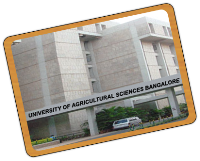 |
|
|
| |
Top |
| |
National
Level
Institutes |
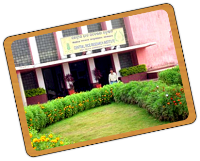
|
Central Rice Research Institute, Cuttack.
- In 1945, the Government of India decided to establish a central Institute for rice research.
- As a result, the Central Rice Research Institute (CRRI) was setup on 22 April 1946 at Bidhyadharpur, Cuttack, Orissa with an experimental farm land of 60 hectares provided by Government of Orissa.
- Subsequently, in 1966, the administrative control of the institute was transferred to the Indian Council of Agricultural Research (ICAR).
|
Mandate: The institute not only played a key role in ushering the country of an ear of green revolution heading to self-sufficiency in food grain supply in about 25 years from its inception, but also brought glory to the national by providing research support in rice to become the second largest exporter of rice in the world in the recent years.
Contact:
Central Rice Research Institute
Cuttack (Orissa) 753 006, India
Phone: +91-671-2367757; PABX: +91-671-2367768-783
Fax: +91-671-2367663
Email: directorcrri@satyam.net.in | crrictc@ori.nic.in |
|
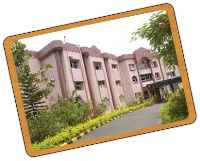 |
Directorate of Rice Research, Hyderabad
Significant Achievements
- The Central Sub-committee of Crop Standards, Notification and Release of Varieties released 5 hybrids viz., DRRH 3, DRH-775, PAC835, PAC837 and HRI157 and four varieties CO(R) 50, Narendra Usar Dhan, DRR Dhan 38 and DRR Dhan 39. State Variety Release Committees have recommended 32 varieties for different situations in 11 states.
|
- IET 19543 (DRRH 44), the hybrid with high yield combining medium slender grain type and other quality characteristics is notified and released as DRRH3 for commercial cultivation in the irrigated areas of Madhya Pradesh, Orissa, Uttar Pradesh, Gujarat and Andhra Pradesh. DRRH3 is the first hybrid possessing medium slender grain released in the country.
- A novel multiplex marker system, MMS-S5, with three markers targeting the major wide-compatible gene (WCG) locus S5 has been developed. This marker can clearly distinguish the three possible allelic states (i.e. indica, japonica and neutral) at S5 and is very helpful in targeted introgression of neutral allele at the major WC G locus through MAS.
- Among different resource conservation technologies in rice, integrated crop management (ICM) was found to be the best in terms of grain yield.
|
|
| |
Top |
| International
Level Institutes |
|
International Rice Research Institute, Philippines
- IRRI, or the International Rice Research Institute, is a nonprofit independent research and training organization.
- IRRI was established in Los Baños, Laguna, in 1960 through funding from the Ford and Rockefeller Foundations.
- IRRI develops new rice varieties and rice crop management techniques that help rice farmers improve the yield and quality of their rice in an environmentally sustainable way.
|
 |
- We work with our public and private sector partners in national agricultural research and extension systems in major rice-growing countries to do research, training, and knowledge transfer.
- Our social and economic research also informs governments to help them formulate policy to improve the equitable supply of rice.
|
Our mission
To reduce poverty and hunger, improve the health of rice farmers and consumers, and ensure environmental sustainability through collaborative research, partnerships, and the strengthening of national agricultural research and extension systems.
Our goals
- Reduce poverty through improved and diversified rice-based systems.
- Ensure that rice production is sustainable and stable, has minimal negative environmental impact, and can cope with climate change.
- Improve the nutrition and health of poor rice consumers and rice farmers.
- Provide equitable access to information and knowledge on rice and help develop the next generation of rice scientists.
- Provide rice scientists and producers with the genetic information and material they need to develop improved technologies and enhance rice production .
Contact
Los Banos Philippines
Tel: +63 2 580 5600, 845 0563
Fax: +63 2 580-5699, 845 0606
Email:irri@cgiar.org |
|
| Top |
CIAT (Centro Internacional de Agricultura Tropical)
International Center for Tropical Agriculture
- CIAT is an agricultural research institution. We focus on scientific solutions to hunger in the tropics.
- We believe eco-efficient agriculture—developing sustainable methods of food production—is the best way to eradicate hunger and improve livelihoods in the region.
|
 |
Mission
To reduce hunger and poverty, and improve human health in the tropics through research aimed at increasing the eco-efficiency of agriculture.
Vision
- CIAT will engage its key scientific competencies to achieve significant impact on the livelihoods of the poor in the tropics.
- Interdisciplinary and applied research will be conducted through partnerships with national programs, civil society organizations, and the private sector to produce international public goods that are directly relevant to their users.
- These goods include improved germplasm, technologies, methodologies, and knowledge.
Contact
Km 17, Recta Cali-Palmira
Apartado Aéreo 6713
Cali, Colombia
Phone: +57 2 4450000 (direct) or +1 650 8336625 (via USA)
Fax: +57 2 4450073 (direct) or +1 650 8336626 (via USA)
E-mail: ciat@cgiar.org
Internet:www.ciat.cgiar.org |
|
| Top |
Bangladesh Rice Research Institute(BRRI)
MISSION
Improvement of rice and development of rice production technologies for sustainable food security.
VISION
- Producing more and quality rice at lower cost through genetic improvement
- Sustain biodiversity, quality and managing disease, insect, fertilizer, water and land current and future generation
|
 |
- Improving institutional capacity for advance research And to develop new innovations for the reduction of poverty and hunger in the country.
Contact:
Bangladesh Rice Research Institute
Gazipur 1701, Bangladesh
Phone: (880-2) 9252736; 9257401-05
Fax: (880-2) 9261110
Email: brrihq@yahoo.com
dg@brri.gov.bd
|
|
| Top |
Rice Research and Development Institute (RRDI), Sri Lanka
Vision
National Prosperity through Excellence in Rice Production.
Mission
To be the National Center for the Development and Primary Dissemination of Technologies to Improve the Productivity and Profitability of Rice Farming and Quality of Rice.
|
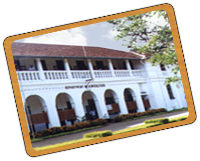 |
Research:
- Rice Research and Development Institute (RRDI) play a major role by releasing new high yielding rice varieties and introducing improved rice production and protection technologies.
- The research and development programs at RRDI focuses on increasing farm productivity, reducing cost of production and improving grain quality of rice.
- Effort were made to develop techniques that will help to increase rice plant resource use efficiency.
- A need base fertilizer application method are being introduced.
Contact:
Department of Agriculture
25, Old Galaha Road
Peradeniya
Sri Lanka
Telephone : 0812 388331, 0812 388332, 0812 388334 |
|
| |
Top |
|